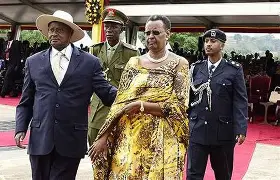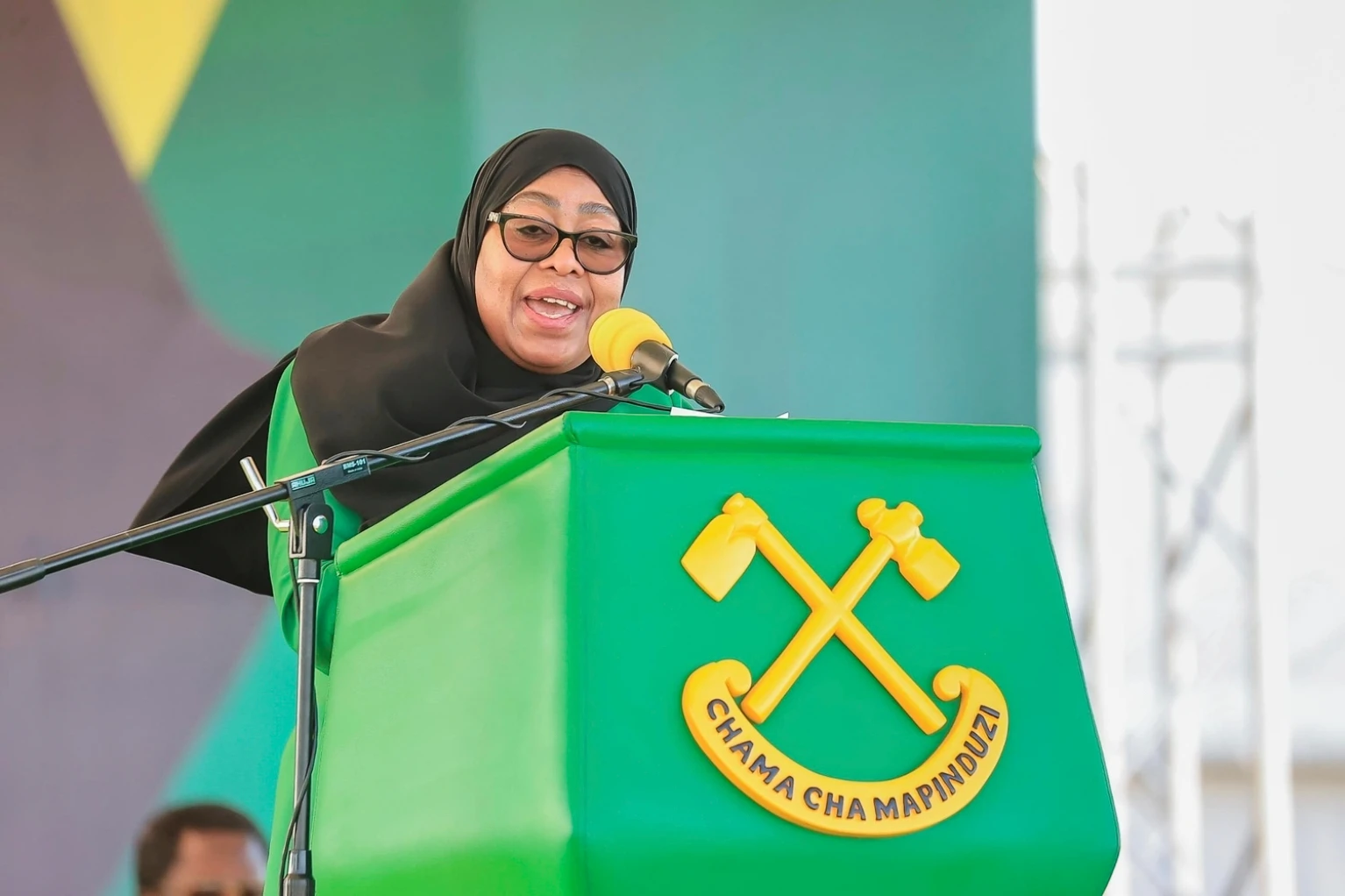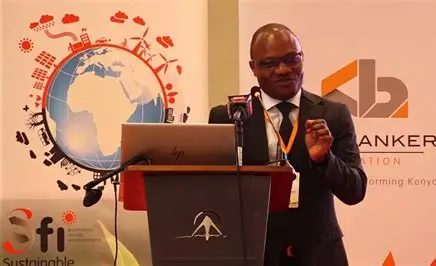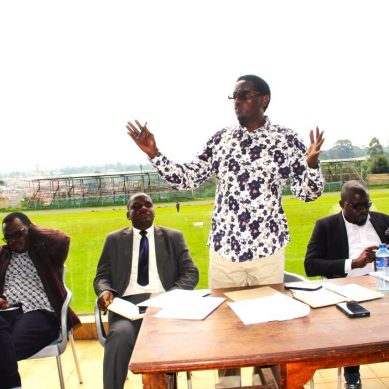
Uganda’s continuing crisis of state legitimacy.
Uganda is a land of divers crises: crisis of human rights, democracy crisis, Buganda crisis, nationhood crisis, citizenship crisis, land crisis, unity crisis, leadership crisis, refugee crisis, Indian crisis, Banyarwanda crisis, Chinese crisis, development crisis, education crisis, agriculture crisis, health crisis, governance crisis, state legitimacy crisis, to name but a few.
Unfortunately, almost invariably none is ever solved. All these are left to nature to take its own Course.
Simultaneously, Uganda is a land of contradictions. These contradictions explain the stagnation of the country like a car stuck in mud with all its tyres flat and the driver unable to move it either forward or backward.
In this article I want to intellectually discuss state legitimacy crisis in Uganda.
Where there is legitimacy, there must have been illegitimacy before. The illegitimate became legitimate through the process of legitimisation, which is the making of something that is wrong or unfair seem acceptable, usually by political, policy, legal or social engineering. For example, the governors of a country may politically and legally legitimise, discrimination, racial segregation, sectarianism, ethnicity or marginalisation, yet doing so is not morally or politically socially acceptable.
Sometimes, if not always, such legitimatisation is done to disadvantage, oppress, repress or suppress one group (which might even be the majority), while the legitimatising group has unrestricted freedom to access leadership, resources and opportunities at the expense of the disadvantaged groups.
Two recent examples of legitimisation of wrong or unfairness in Uganda were when parliament was used to legalise the removal of presidential term limits and presidential cage limits to enable the incumbent president to enjoy access to power unlimitedly, whether or not Ugandans vote, since he could continually influence the electoral process or even the legislative and judicial processes in case of complaint from alternative political actors who felt electorally cheated.
Since Uganda is said to be a democracy, the political and legal legitimatising was both politically and legally wrong. It was also ethically and morally wrong, and depicted Uganda as having no code of conduct in political governance. This could offer an adroit ruler a window of opportunity to manipulate the political order and his own party to perennially access and retain power at the expense of meaningful change.
I must emphasise that the process of legitimatisation of the state of Uganda, which started with the British colonialists, when they established their state over the area they first called the British Protectorate of Uganda, then Commonwealth Realm of Uganda and finally Uganda, is a continuing process.
With the high turnover of political regimes, a multiplication of legitimisations, different from one regime to another, are inevitable. It is akin to a crisis. That is why the title of this article is “Uganda’s continuing crisis of state legitimacy”. Each state has had its unique characteristics, and state-society relations will differ from one country to another. Difference, not similarity, obtains.
But what is a state? The words state, nation and country are frequently used interchangeably to mean one and the same thing, and the word sovereign has been attached to each of the words, to mean independence, even if they are politically, artificially created, and even if interdependence is the rule rather than the exception.
Wikipedia says there is no undisputed definition of the word state. For the purposes of this article, I will adopt the definition it gives, citing Max Weber, as “a centralised political organisation that imposes and enforces rules over a population within a territory“.
In virtually all countries, imposition and enforcement of centralised political organisation is achieved through the use of police as the military concentrates on securing borders of countries, or even aggressing other States, as we are seeing Russia do, seeking to have political and military dominion over Ukraine, a former national entity in the defunct Soviet Union, which was created by Russian imperialism over 70 nations (including Russia itself), and was dissolved on 26th December 1991.
In Uganda today, the imposition is by both police and the military, increasingly indistinguishable, and sub-served by numerous paramilitary groups and intelligence or spying institutions, all of which frequently use excessive force and disregard the law to impose NRM rule. The imposition is frequently sold as “security“.
In the name of security other political actors and political organisations are restricted in organisation and access to the people. This is the most visible politico-military expression of the Uganda state, which has driven many to conclude that even if elections, which the incumbent and his party must at all costs, win, are held every five years, the state is both a military and police state in one, and that, therefore, Uganda is militarily occupied and conquered, and all civilian spaces have been captured by the military..
It is important to distinguish a public state and a deep state. For the purposes of this article, I will take a public state as a political entity consisting of the people, who select leaders through free and fair elections, and exist in communities (in rural and urban areas) interactively; the executive, often composed, elected or nominated individuals who provide political leadership of various sectors of the human economy (i.e. an economy that gives priority to what people and communities consider important to them, do and think should be the priority for them, while addressing the needs of humanity as a whole, not globalisation, infrastructure or monetary culture); the legislature, which consists of elected representatives and whose primary role is, or should be to make laws that are relevant to the people and their communities, rather than those which oppress, suppress, repress and suppress them, or serve the selfish interests of those in power or foreigners – human and institutional); judiciary (i.e. the arm of government in which judicial powers are invested and to apply the law); the media (i.e. the communication channels through which we disseminate news, information, music, movies, plays, education, promotional messages, etc.
It includes physical and online newspapers and magazines, TV, radio, billboards, Zoom telephone, the internet and fax); and various institution, that include schools, universities, churches, mosques, hospitals, and many different private institutions active in the economy).
The Uganda public state is said to be diminishing and giving way to the emergence of a deep state, which is parasitising upon it, with a view to taking everything, including owning you and myself.
We need to distinguish the two too. I have told you what a public state is and to which state legitimacy applies. A deep state is not bothered about legitimacy and legality. It is illegitimacy and illegality that make it tick. I will take deep state to mean “an alleged secret network of especially nonelected government officials and sometimes private entities such as financial services and defence industries operating extra-legally to influence things like legislation, judicial processes, government policies, while avoiding paying taxes, but tightly keeping the population under check and control, especially to ensure there is no uprising even when the people are pressed to the wall by hard socioeconomic and socio-political conditions”.
I need to touch on nation-states too, whose legitimacy is acquired differently. Nation states are the ones that the British colonialists found in existence in the area they initially called Uganda Protectorate, then the Commonwealth Realm of Uganda on Independence Day in 1962, and finally Uganda on the first commemoration of independence in 1963. They were legitimate nation-states.
The nation-states were: Acholi, Ankole, Buganda, Bugisu, Bukedi, Bunyoro, Busoga, Karamoja, Kigezi, Lang’o, Moyo, Sebei, Teso, Toro, and West Nile. Some like Ankole, Buganda, Bunyoro, Busoga and Toro were in advanced forms of organisation as kingdoms.
After signing the first agreement with any nation-state in the area they strategised to establish their artificial, illegal and illegitimate colonial state, the British colonialists plotted to abolish the feudal entity of Busoga, the only one in the East Africa, and whose hegemony was at the Nnenda Hill in Busambira of Kigulu County. They did not destroy the six hereditary chiefdoms (except Buzaaya) they found functioning (i.e. Bugabula, Bugweri, Busiiki, Bukooli and Luuka) as the blocks of local governance in Busoga but through divide and rule, they recognised Bulamogi and Bukono (which had been integral parts of the hereditary chiefdom of Busiiki) as hereditary Chiefdoms, and added Kigulu, which was the seat of the hegemony at Nnenda, Butembe, Bunyhole and Bunhya.
As I said above, Buzaaya Chiefdom, which was one of the ancient chiefdoms established by Byaruhanga Ndahura disappeared under British colonial rule, with part of it added to Bugabula and another part added to the new Butembe Chiefdom.
All the nation-states the British found and moulded into the Uganda Protectorate State had one thing in common: each other’s people shared history, language, ethnicity, culture and ancestry, and each was a cultural group (the reason it was a nation-state, but it was also sovereign. To degrade them and subjugate them to their new colonial state, the Uganda Protectorate, they abolished their nationhood, statehood and sovereignty, and called them tribes, and then set about legitimatising their artificial central state.
Tribes existed in England, and perhaps in the whole of Great Britain and Europe, but not anywhere in Africa. They wanted to use their new label as a tool for divide and rule. It worked for them and has worked for the post-colonial rulers of the post-colonial state of Uganda. Whenever, they want to silence the former nation-states, they evoke tribalism and sectarianism. When the former nation-states want to pursue their interests and defend and preserve their identities, they are told they are being tribalist and sectarian.
When they want to protect their land from being grabbed or encroached upon by foreigners, they are told they are being sectarian and referred to and threatened by the Anti-Sectarian Law, which serves the interests of the encroachers and grabbers. When they want to claim sovereignty over their natural resources underground, they are told those are state resources, and are referred to the 1995 Constitution whose making was dominated by people from elsewhere.
Unfortunately, with the increasing manifestation of the deep state, such resources are falling in the hands of a few mafias and members of their families or kinsmen and kinswomen in concert with some foreigners they prefer to use as fronts. But as I pointed out above, deep states operate illegally and illegitimately and end up undermining the legitimacy and laws of the country.
Meaningful state legitimacy is seen in the effectiveness of public institutions and their performance of their functions, including: service delivery, taxation, accountability, openness, security, social protection (pension), investment in agriculture, education and health.
The British colonialists institutionalised these functions very well and performance was high, but as far as it benefited them more. Unfortunately, in the Uganda of today performance has deteriorated in every sphere of the economy as the governors emphasise power and power retention. Institutions are collapsing, with only those of presidency and state house standing tall. Service delivery, accountability and openness are at their lowest. There is quality security for a few but poor security for the majority. Taxation has become punitive and multiple, with little to show on the ground. Government is investing in the education and health of Tanzania and Rwanda while those sectors have almost collapsed in Uganda.
Investment in Agriculture has plummeted with the focus shifting to individualist rather than communalistic development through make-shift institutions such as Bonna Baggagawale, Myooga, Operation Wealth Creation and Parish Development Model, through which money bonanzas are given to individuals or groups of individuals, often partisan, and members of the ruling party. Fishing has been sacrificed to foreigners, principally Chinese exploiters, who are now culturing genetically modified fish in Lake Victoria.
Clearly state legitimacy during the reign of President Tibuhaburwa Museveni has become as problematic as before 1986 or worse. To enhance the power of the centre, the former nation states have been bantustanised into numerous districts, constituencies and sub-counties. Although initially the justification was that this was being done to bring services nearer to the people and enable them to participate in their own governance, these have been eroded by being penetrated by State House through resident district commissioners (RDCs) and security officers (belonging to the Internal Security Organisation) most of whom are soldiers. This does not augur well for peace and security in the future.
The vast majority of Ugandans now see themselves marginalised and submerged in socio-political and socioeconomic conditions that are favourable for political violence sooner than later. It is unstable stability everywhere. However, the falsehood is that Uganda is secure. The question is: is the security, based on the power of the gun rather than embedded in the heads of men and women, and between them, sustainable?
We see erosion of peace and security in both rural and urban areas at a rate unimaginable after 2000. Ogega Otunnu (2017) has indicated that the crisis of state legitimacy and political violence in Uganda continues. He has looked at the crisis of state legitimacy under the Uganda National Liberation Movement/Army (UNLF/A) from 1979-1980, Uganda People’s Congress during Obote II from 1981/1985, Tito Okello military junta from 1985-1986 and National Resistance Movement under Tibuhaburwa Museveni from 1986-2016 (SpringerLink Search, 2020).
State-society relationships were not healthy during the reigns of UNLF/A, UPC during Obote II, and Tito Okello junta. Indications are that state-society relations are set to become even unhealthier with passage of time, with many people beginning to lose confidence and trust in government, and to believe that despite regular elections, the country is under military rule. As the state responds to every type of social discontent and depresses the people psychologically, its legitimacy is declining. The worst to happen would of course be the breakdown of state-society relations as in the past.
According to Applied Knowledge Services, state legitimacy remains a key aspect of state-society relations, which must be balanced jealously by those in power. When state-society relations and citizenship are tranquil and in balance the vices of oppression, suppression, repression and depression do not characterise relations. If they do, these vices, create conditions for fear and mistrust to proliferate and permeate society from bottom to top and horizontally. The capacity of the state to manage competing interests and to respond to citizens expectations and needs declines. Its potential to improve its legitimacy will also declines.
The state may lose confidence and resort to militarisation and military approach to social discontent in society, with destruction of institutions as it infiltrates them militarily and with spies. Or else the public state will increasingly be seized by a few individuals or families who will ensure the national budget and national policies serve their interests at the expense of the public interest.
So, by this time the deep state is in charge. When all this happens, the public is at the mercy of the deep state. Education, health and agriculture – the social sectors of the economy – continually decline rapidly because social security and social development are no longer the priority, but maximising gain by a few predominates. Conflict generation becomes more common than conflict resolution. Human rights violations and erosion of justice are at the centre of political governance. Everything becomes political or military, with increasing fusion of the political and the military.
Cooptive politics become more common to try and sustain public state legitimacy, and to show that the State is not dysfunctional. This is deception.
Let me briefly touch on State Legitimacy Index. This indicator of state-society relations was innovated by The Global Economy. Com. When the index is low, it means state legitimacy is high. When it is 10, it means state legitimacy is low. The values for 173 countries are available from 2007 to 2021. The average for 2021 based on 173 countries was 5.75 index points. The highest value was in Guinea and Syria at 10 index points. The lowest value was 0.5 for most of the developed countries such as Australia, Holland and Sweden.
Among developed countries USA and Israel had the highest values at 3.50 and 3.30 respectively. For Uganda the value was 8.40, just like for Vietnam and Nigeria. Between 2007 and 2021, the average value for Uganda for the period was 8.19 index points, with the minimum being 7.7 index points in 2011 and the maximum being 8.6 index points in 2017.
So, state-society relations in Uganda have been consistently and persistently poor since 2007 and seem to be getting worse. It will be interesting to know the value for the country in 2022. Over-militarisation of the country and recommitment to power retention by the governors could explain this status quo.
Let me conclude this article. State legitimacy (or state-society relations) is better in the developed countries and is at worst in the poorest of countries, where emphasis is on power retention rather than improving the quality of life for the people. Many such countries suffer from the burden of dictatorship and misappropriation of funds for the self-aggrandisement of a few, often ethnically related and in close kinship. Uganda is among the worst performers in state legitimacy. So many people have been killed by the military, the police and other state operatives in defence of power and power retention over the last 36 years.
Improvements in state-society relations remain insignificant or are becoming difficult to realise as all power and authority are increasingly concentrated in the hands of one person -President Tibuhaburwa Museveni. The crisis of state legitimacy continues in Uganda.
For God and my country.
- A Tell report / By Oweyegha-Afunaduula / Environmental Historian and Conservationist Centre for Critical Thinking and Alternative Analysis (CCTAA), Seeta, Mukono, Uganda.
About the Centre for Critical Thinking and Alternative Analysis (CCTAA)
The CCTAA was innovated by Hyuha Mukwanason, Oweyegha-Afunaduula and Mahir Balunywa in 2019 to the rising decline in the capacity of graduates in Uganda and beyond to engage in critical thinking and reason coherently besides excellence in academics and academic production. The three scholars were convinced that after academic achievement the world outside the ivory tower needed graduates that can think critically and reason coherently towards making society and the environment better for human gratification. They reasoned between themselves and reached the conclusion that disciplinary education did not only narrow the thinking and reasoning of those exposed to it but restricted the opportunity to excel in critical thinking and reasoning, which are the ultimate aim of education. They were dismayed by the truism that the products of disciplinary education find it difficult to tick outside the boundaries of their disciplines; that when they provide solutions to problems that do not recognise the artificial boundaries between knowledges, their solutions become the new problems. They decided that the answer was a new and different medium of learning and innovating, which they characterised as “The Centre for Critical Thinking and Alternative Analysis” (CCTAA).








